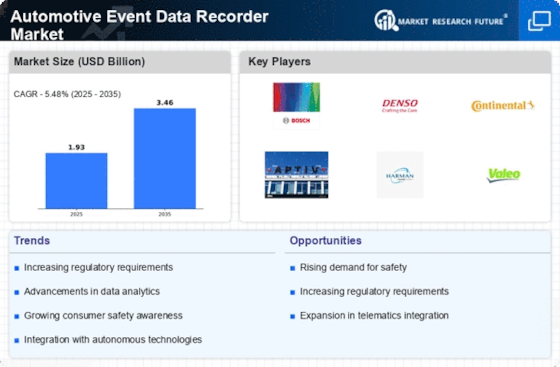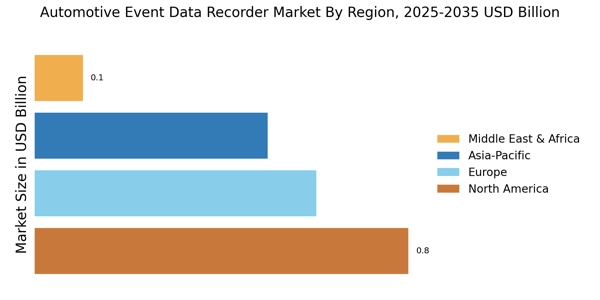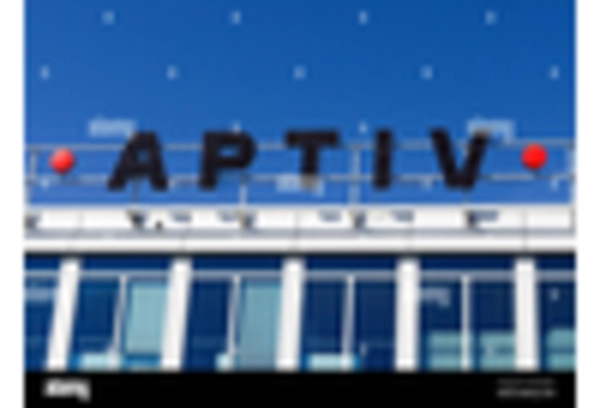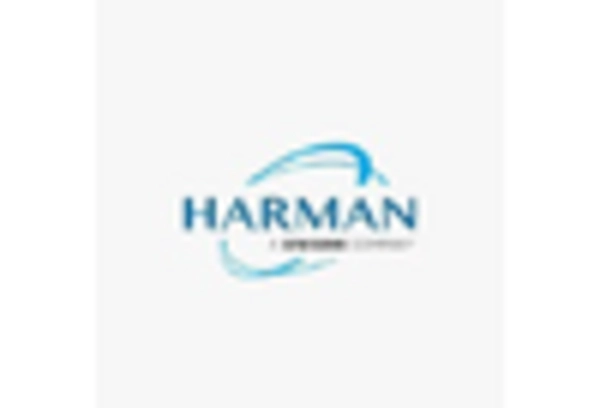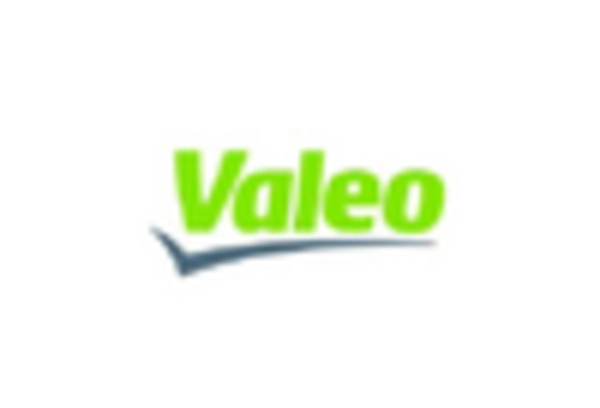Insurance Industry Demand
The demand from the insurance sector is a notable driver for the Automotive Event Data Recorder Market. Insurers are increasingly utilizing data from event data recorders to assess risk and determine premiums. This data-driven approach allows for more accurate underwriting and claims processing, which can lead to cost savings for both insurers and policyholders. As the insurance industry evolves, the integration of telematics and event data recording is becoming more prevalent, with some insurers offering discounts for vehicles equipped with such technology. This trend not only enhances the value proposition for consumers but also stimulates growth within the Automotive Event Data Recorder Market, as more vehicles are equipped with these devices.
Increasing Road Safety Concerns
The rising emphasis on road safety is a pivotal driver for the Automotive Event Data Recorder Market. As traffic accidents continue to pose significant risks, stakeholders are increasingly advocating for technologies that enhance vehicle safety. The integration of event data recorders is seen as a proactive measure to gather critical information during incidents, thereby aiding in accident analysis and prevention strategies. According to recent statistics, the implementation of such devices has been linked to a reduction in accident rates, which further propels their adoption. This trend is likely to continue as consumers and regulatory bodies alike prioritize safety features in vehicles, thereby expanding the Automotive Event Data Recorder Market.
Legislative Mandates for Data Recording
Legislative mandates for data recording in vehicles are emerging as a strong driver for the Automotive Event Data Recorder Market. Various jurisdictions are beginning to implement regulations that require the installation of event data recorders in new vehicles. These mandates are primarily aimed at enhancing road safety and improving accident investigation processes. As more regions adopt such regulations, the demand for event data recorders is expected to surge, compelling manufacturers to innovate and comply with these standards. This regulatory push not only fosters growth within the Automotive Event Data Recorder Market but also encourages advancements in technology to meet the evolving requirements.
Growing Adoption of Fleet Management Solutions
The rising adoption of fleet management solutions is a key driver for the Automotive Event Data Recorder Market. Fleet operators are increasingly recognizing the value of data in optimizing operations, enhancing safety, and reducing costs. Event data recorders play a crucial role in this context by providing real-time insights into vehicle performance and driver behavior. This data can be instrumental in improving fleet efficiency and safety, leading to lower operational costs. As the demand for efficient fleet management continues to grow, the Automotive Event Data Recorder Market is likely to experience significant expansion, driven by the need for advanced data collection and analysis tools.
Technological Integration with Advanced Driver Assistance Systems
The integration of Automotive Event Data Recorders with Advanced Driver Assistance Systems (ADAS) is a significant driver for the Automotive Event Data Recorder Market. As vehicles become increasingly equipped with sophisticated technologies aimed at enhancing driver safety and convenience, the role of event data recorders becomes more critical. These devices can capture data related to the performance of ADAS features, providing valuable insights into their effectiveness and areas for improvement. The synergy between these technologies not only enhances vehicle safety but also supports manufacturers in meeting regulatory requirements. Consequently, this integration is expected to drive the growth of the Automotive Event Data Recorder Market as more automakers adopt these systems.


